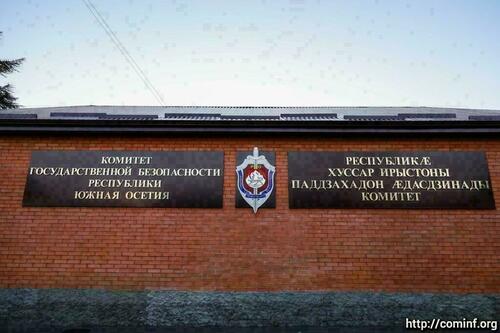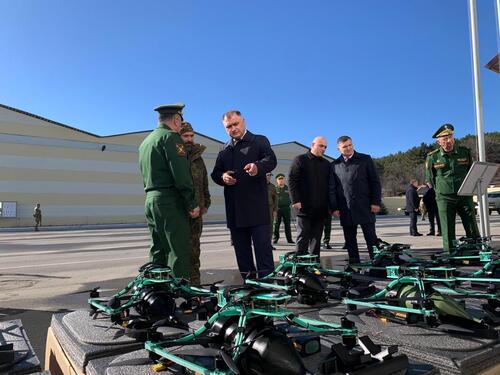The decision of the European Parliament on the ratification of the Association Agreement EU - Georgia, adopted on December 18 gave a new impetus to the Georgian authorities and their Western backers to continue unfounded accusations against the cooperation of Russia, South Ossetia and Abkhazia.
According to the Georgian media, the President of Georgia Giorgi Margvelashvili "decided to start with new ways of solving the Georgian-Abkhaz and Georgian-Ossetian conflicts." December 19, he met with representatives of non-parliamentary parties, in order to "create a single coherent vision that Georgia can offer to the population of the occupied territories in today`s Western orientation."
The correspondent of IA "Res" asked the Presidential Plenipotentiary Envoy of the RSO for post-conflict settlement Murat Dzhioev to comment the current situation.
- First of all, I would like to note that the EU and the West in general, with respect to Georgia remain the prisoners of their old illusions and mistakes. At one time, recognizing Georgia as an independent state within the borders of the former Georgian Soviet Socialist Republic, part of the Soviet Union, the West did not take into account that by the time Georgia was no longer within these boundaries. The Republic of South Ossetia has gained independence in 1990, in full accordance with international law and the then acting laws of the USSR and has no relationship to the "territorial integrity" of Georgia, adopted by the international community in 1993, exactly as Georgia has no relationship to the territory of the Republic of South Ossetia. Therefore, any assertion that Russia "continues to occupy the regions of Abkhazia and South Ossetia" is completely wrong statement, because Russia's relations with the recognized states -the Republic of South Ossetia and Abkhazia are allied, based on a solid international legal basis. So, following the terminology used in the resolution of the European Parliament, I declare that we condemn the unlawful Western support of the completely unfounded claims of Georgia to South Ossetia.
As for the Georgian authorities to search for new ways to address the issue of settlement of relations between Georgia and South Ossetia, it is a good deal if it will come from taking into account the existing realities, that is, if Georgia really wants to establish good neighborly relations. If we are talking about the development of proposals in the sense of "settlement of the Georgian-Ossetian conflict" "in a Western orientation," this lesson has passed long ago. Such attempts many times declared Saakashvili holding meetings either in Tbilisi, or on the beach in Kobuleti, offering the NGOs to develop draft settlement, but it was all an illusion. On the settlement of the Georgian-Ossetian conflict there were talks till August 2008. After the Georgian military aggression in August 2008 was repelled and Russia and then the other states recognized the independence of South Ossetia, we are talking not about the Georgian-Ossetian conflict but about the settlement of relations between the two neighboring countries. This solution can only be based on the existing realities, but not from the historical standpoint or ambitions of Georgia. Normalization of relations should be in the interests of the peoples of both countries, the peace in the region as a whole. Today the path to it is through the Geneva process.






